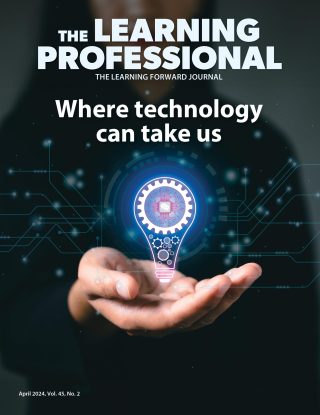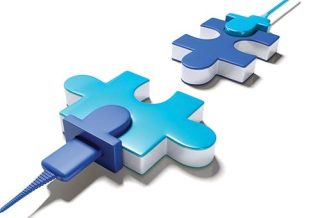FOCUS
A Bold Experiment
Teachers team with scientists to learn Next Generation Science Standards
By Sharon L. Gilman and Martha C. Fout
February 2017
Vol. 38 No. 1
Read the remaining content with membership access. Join or log in below to continue.
Sed ut perspiciatis unde omnis iste natus error sit voluptatem accusantium doloremque laudantium, totam rem aperiam, eaque ipsa quae ab illo inventore veritatis et quasi architecto beatae vitae dicta sunt explicabo. Nemo enim ipsam voluptatem quia voluptas sit aspernatur aut odit aut fugit, sed quia consequuntur magni dolores eos qui ratione voluptatem sequi nesciunt. Neque porro quisquam est, qui dolorem ipsum quia dolor sit amet, consectetur, adipisci velit, sed quia non numquam eius modi tempora incidunt ut labore et dolore magnam aliquam quaerat voluptatem.
Sharon L. Gilman (sgilman@coastal.edu) is associate professor of biology at Coastal Carolina University in Conway, South Carolina. Martha C. Fout (mfout@horrycountyschools.net) is a science learning specialist for grades 6-12 in Horry County Schools in Conway, South Carolina.
References
Ball, D.L. & Cohen, D.K. (1999). Developing practice, developing practioners: Toward a practice-based theory of professional education. In G. Sykes & L. Darling-Hammond (Eds.), Teaching as the learning profession: Handbook of policy and practice (pp. 3-32). San Francisco, CA: Jossey Bass.
Huffman, D., Thomas, K., & Lawrenz, F. (2003). Relationship between professional development, teachers’ instructional practices, and achievement of students in science and mathematics. School Science and Mathematics, 103(8), 378-387.
National Research Council. (2012). A framework for K-12 science education: Practices, crosscutting concepts, and core ideas. Washington, DC: National Academies Press.
Trowbridge, L. & Bybee, R. (1996). Secondary school science: Strategies for developing scientific literacy (6th ed.). Englewood Cliffs, NJ: Prentice Hall.
Recent Issues
EVALUATING PROFESSIONAL LEARNING
February 2024
How do you know your professional learning is working? This issue digs...
TAKING THE NEXT STEP
December 2023
Professional learning can open up new roles and challenges and help...
REACHING ALL LEARNERS
October 2023
Both special education and general education teachers need support to help...
THE TIME DILEMMA
August 2023
Prioritizing professional learning time is an investment in educators and...











